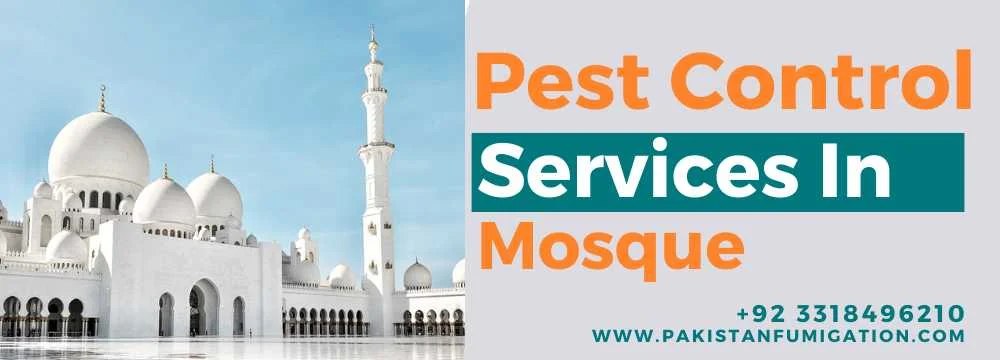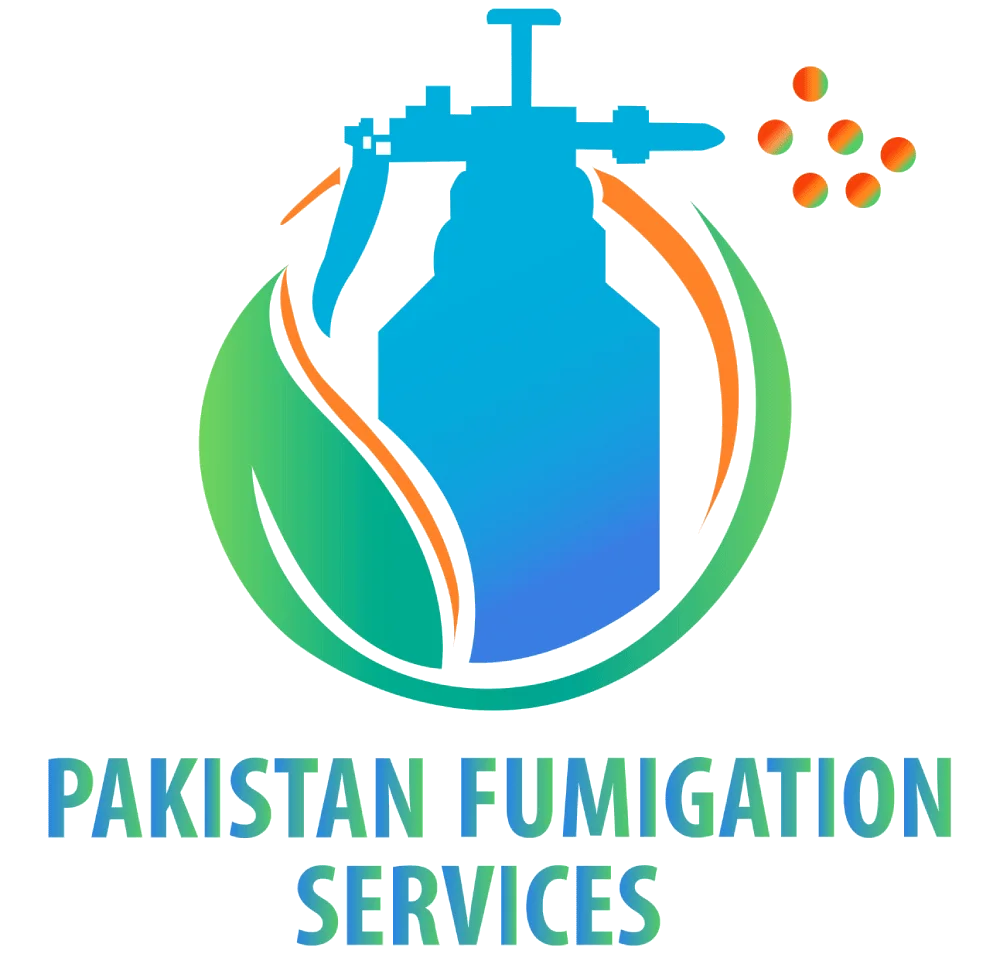
Pest Control Services For Mosque (Masjid) in Karachi Pakistan
Mosques (Masajid) in Karachi need both spiritual care and cleanliness. Prayer halls, libraries, and surrounding areas require regular cleaning to ensure a safe, pest-free environment for worshippers. Pests like rodents, insects, and termites can cause health risks, property damage, and disturb the peaceful atmosphere. Fumigation is an effective pest control method that helps keep mosques free from pests, ensuring a safe space for worshippers.
Pakistan Fumigation understands the unique needs of mosques in Karachi. We provide pest control services that protect these sacred spaces from pests.
In this post, we will discuss the importance of fumigation for mosques in Karachi and why Pakistan Fumigation is a trusted pest control partner in the city.
Why Pest Control in Mosques is Essential
Pests like rodents, termites, cockroaches, bedbugs, and mosquitoes can cause significant issues for mosques. They affect the physical structure and disrupt the worship experience. In Karachi, where the climate encourages pest infestations, it is important to address these problems regularly. Common pests in mosques include:
- Rodents: Mice and rats can damage carpets, prayer mats, and food supplies while spreading diseases.
- Termites: These pests damage wooden structures, including doors, windows, and bookshelves.
- Cockroaches: Cockroaches carry harmful bacteria and viruses, creating health risks.
- Bed Bugs and Fleas: These pests can make worshippers uncomfortable, especially during long prayer sessions.
- Mosquitoes: Karachi’s humid climate is ideal for mosquitoes, which spread diseases like malaria and dengue.
Fumigation services can eliminate these pests and protect the mosque’s structure. Pakistan Fumigation provides specialized fumigation solutions to address the pest challenges mosques face in Karachi.
What is Fumigation?
Fumigation is a pest control method that uses gaseous chemicals to eliminate pests. The fumigant reaches all areas, even hard-to-reach spots like walls and ceilings. This makes fumigation a great solution for mosques, where pests may hide in hidden spaces. It ensures that all pests, visible or not, are removed without disrupting daily activities.
At Pakistan Fumigation, we use advanced techniques to remove pests while ensuring the mosque’s safety. The fumigation process involves releasing a fumigant gas, which is safe for humans once the process is complete. Our experts follow strict safety protocols to ensure the mosque is fully treated.
Why Choose Fumigation for Pest Control in Mosques?
Fumigation offers many benefits for pest control in mosques. Here are some reasons why mosques in Karachi should use fumigation services from Pakistan Fumigation:
- Effective Pest Control: Fumigation targets various pests, such as rodents, termites, insects, and microorganisms. It ensures complete pest removal, even in hard-to-reach areas of the mosque.
- Quick Process: Fumigation is fast and efficient. It typically takes a few hours to complete. After the fumigant dissipates, the mosque is ready for use, minimizing any disruption to prayers and activities.
- Long-Term Results: Fumigation provides long-lasting protection. The effects can last for several months, keeping pests away and ensuring a pest-free environment.
- Safe for Worshippers: When done by professionals like Pakistan Fumigation, fumigation is safe for humans and pets. Experts take necessary precautions, ensuring the fumigant is non-toxic once the process is finished.
- Environmentally Safe: Modern fumigation uses chemicals that are safer for the environment. This ensures the mosque remains safe and intact for everyone.
The Fumigation Process for Mosques
When you hire Pakistan Fumigation for pest control in your mosque, we follow a clear and simple process to ensure effective pest eradication. Here are the steps involved:
- Inspection and Assessment: The first step is a thorough inspection of the mosque. Our experts assess the pest infestation, identify the types of pests, and locate the affected areas. This helps us determine the best fumigation approach.
- Preparation of the Mosque: Before fumigation begins, the mosque must be prepared. People, animals, and sensitive items like prayer mats and books should be removed or covered. We work with mosque administrators to prepare the space. We will seal doors, windows, and gaps to contain the fumigant gas.
- Fumigation: Our professionals will release the fumigant gas into the mosque, ensuring it reaches all areas, including hidden spaces like the attic, ceilings, and walls. The gas will spread evenly, killing pests in every corner.
- Aeration and Ventilation: After fumigation, we ventilate the mosque to clear any fumes. This ensures the air quality is safe for worshippers. We maintain proper ventilation to make sure the mosque is safe to enter.
- Post-Fumigation Inspection: After fumigation, we may perform a follow-up inspection to confirm that all pests have been removed. If necessary, we will apply additional treatments to ensure complete pest eradication.
How Often Should Mosques in Karachi Be Fumigated?
The frequency of fumigation depends on factors such as the size of the mosque, its location, and the level of pest problems. Mosques in Karachi should be fumigated at least once or twice a year. It is especially important to fumigate before and after the monsoon season, as humidity and rain can increase pest infestations.
Professional Fumigation Services by Pakistan Fumigation
Pakistan Fumigation offers high-quality fumigation services for mosques in Karachi. Our experts use safe, eco-friendly fumigants and the latest techniques for effective pest control. We know the importance of keeping worship spaces clean and peaceful. Our team is committed to providing the best pest control solutions for mosques in Karachi.
Conclusion
Fumigation is important for pest control in mosques in Karachi. Pests can cause health risks and damage to property. It is essential to take action to protect mosques. Pakistan Fumigation offers professional fumigation services to keep mosques clean, comfortable, and pest-free for worshippers. We provide reliable pest control solutions to maintain a peaceful environment.
Contact Pakistan Fumigation today for more information about our fumigation services.
Call Us Today
(+92) 331 8496210
We offer pest control services for individuals, businesses, and corporations. Contact us for a free inspection.
What Our Clients Say
Muhammad Abdullah — 2022-06-02
Pakistan Fire & Fumigation is one of the best companies, offering mind-blowing customer service across Pakistan.
NAJAM ISLAM — 2022-06-02
Best fumigation in the town i must sayyy
Anas Amir — 2022-06-04
I have tried their fumigation service and hands down they are the best in karachi.
Javed Khan — 2022-06-05
Expert teams and very cooperative staff best work done in my house
Rafay Paracha — 2022-06-06
Best fumigation servies in Karachi! One should really try their services for a healthier environment.
Ahmed Shah — 2022-06-01
Best fumigation in town, I must say!
